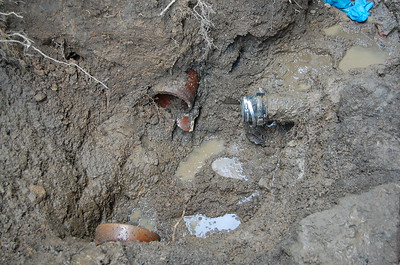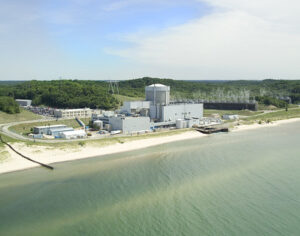Washtenaw Community College officials announced today that they will work proactively to prevent a third sewage spill on campus. Which sounds a little reactive, but at this point, reactive is better than nothing.
WCC described the initial spill in media reports as 3,000 gallons of untreated sewage. In its report to the State of Michigan, it estimated the volume of the spill at 10,000 gallons. At 10,000 gallons, the sewage spill would be the fourth-largest sanitary sewer overflow (SSO) in Michigan in 2022. At 3,000 gallons, it would be the fifth-largest spill in 2022. So, it is hard to minimize the significance of these discharges.
WCC indicated that it filed a report with the Michigan Department of the Environment, Great Lakes, and Energy (EGLE) on the second sewage spill, but no public data is available on the EGLE website. WCC did not disclose to the media the size of the second spill. The State of Michigan requires entities to report SSOs of any size to EGLE.
WCC indicated that now plans to inspect the entire system for leaks, and replace the entire sanitary system on campus. Scoping out the entire system for leaks tells me that WCC does not know the condition of its sanitary system. Planning to replace the entire system tells me that WCC has a pretty good idea of the condition of its sanitary system.
Avoiding a third sewage spill is essential
The sewage saga on WCC’s campus points to one inescapable fact: neglect creates consequences. And the sewage spill is the result of not taking the time to understand the condition of critical infrastructure on campus. Parts of the campus are more than 50 years old. Sanitary lines have a finite lifespan. According to the American Concrete Pipe Association, concrete pipes have a life expectancy of 50-75 years. If the sanitary lines are made of cast iron, they would have an estimated average life expectancy of 50-100 years, but that number can vary widely, and certain conditions can shorten the life of the pipe substantially. Some cast iron waste pipes can fail within 25 years of initial installation.
After WCC replaces the sewer lines, the Trustees should carefully consider the adoption of an Asset Protection Clause in the Chief Executive’s contract. Filling stormwater ponds with shit is not a good look. Doing it twice in the space of ten days is fully and completely unacceptable. WCC always seems to have enough money to hire yet-another-Vice-President or send a little extra gravy the President’s way. But there’s no money (and apparently no motivation) to care for the facilities.
The people have sunk $360M into WCC’s facilities. Putting someone’s job on the line is the best way to make sure that investment receives proper care. That someone is the Chief Executive.
And there is no sane reason to do anything less.
Photo Credit: Dan , via Flickr


























